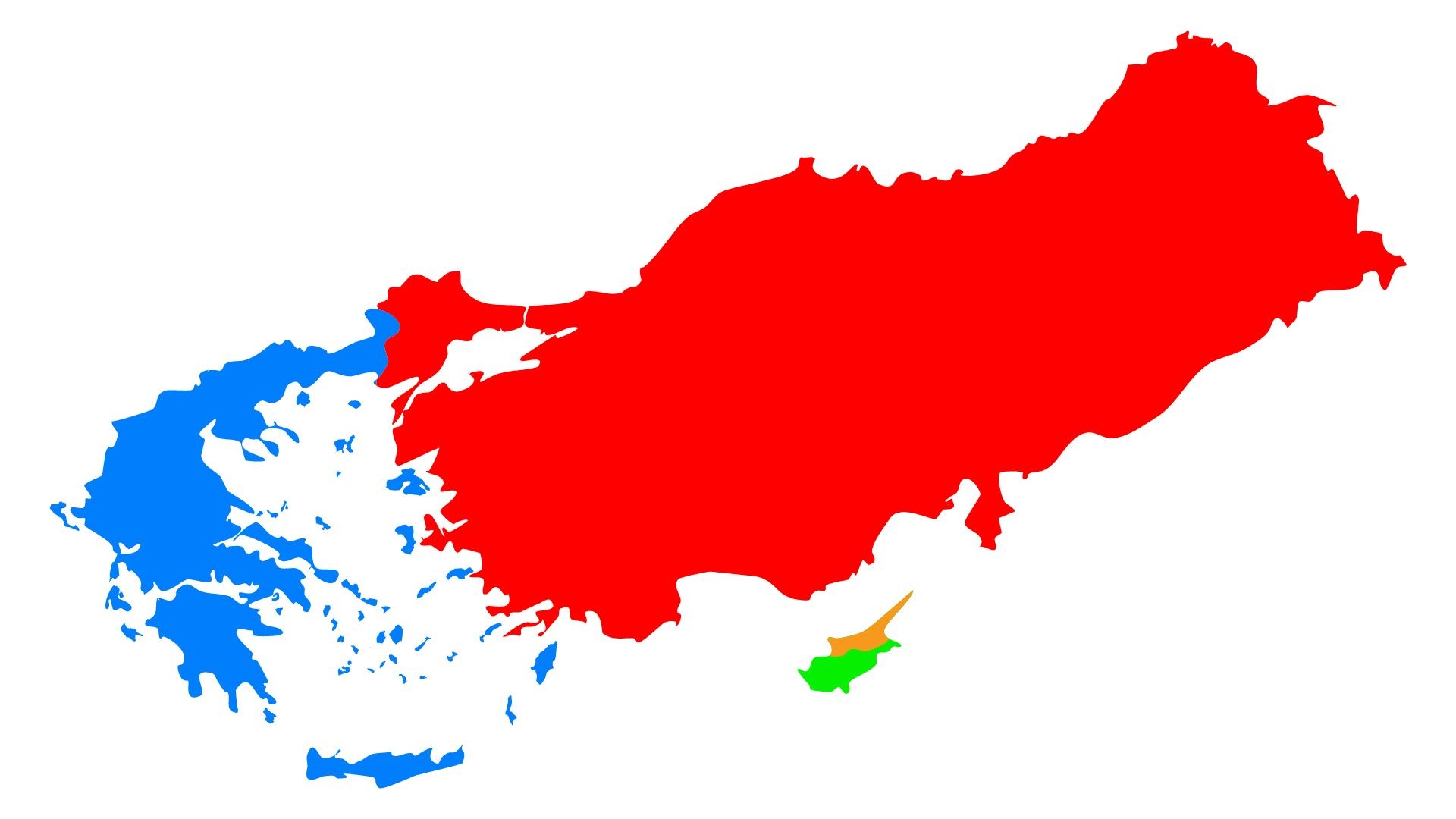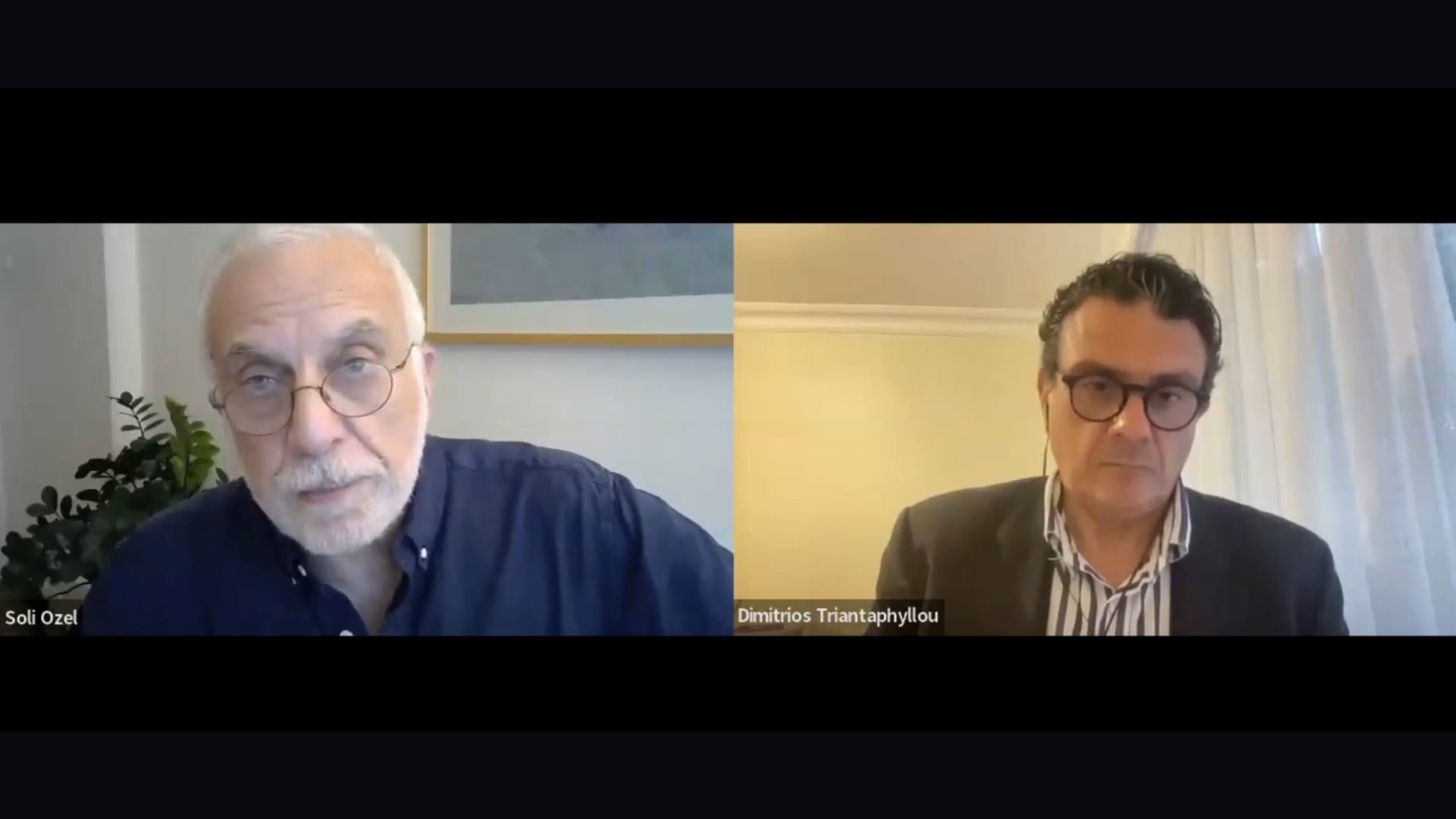Elections in Turkey and Greece: Strengthening or Straining Relations?
A discussion on how electoral outcomes in both countries could shape the bilateral relations and foreign policies.

Both Turkey and Greece held elections in May 2023 that will have reverberations for years on the region.
Turkey held presidential and parliamentary elections on May 14, with a subsequent presidential run-off on May 28. Despite indications from opinion polls suggesting a possible opposition win, the ruling Justice and Development Party (AKP) and its allies won a majority in the parliamentary elections. President Erdoğan fell short of an absolute majority in the first round, before winning re-election in the second-round run-off.
On the other side of the Aegean Sea, Greece had two parliamentary elections in five weeks, on May 21 and June 25, after the conservative New Democracy Party failed to secure the majority of seats in the first elections. The victory in the second allowed Mitsotakis another four-year term as prime minister.
On June 15, Columbia Global Centers | Istanbul held a seminar to talk about what is happening in Turkey and Greece, and to reflect on likely scenarios on how electoral outcomes in both countries would shape the bilateral relations and foreign policies.
Dimitrios Triantaphyllou, professor of International Relations and director of the Center for International and European Studies at Kadir Has University, first touched on what the elections might mean from the Greek perspective. He referred to results of the recent elections in the country, underlining that the voters made their choices not based on ideology, but on their expectations about sustained economic growth.
“The fact that investments from abroad are starting to come, the fact that pensions are getting paid on time, the fact that, for the first time in a long time, people have been seeing raises in their salaries in the public sector is crucial,” Triantaphyllou said.
“The minimum wage has been raised a couple of times and every single party promise that was made by the New Democracy Party in the 2019 Elections have actually been kept.”
Triantaphyllou foresaw that the new government in Greece will mean a strong leader for the country with Mitsotakis consolidating his power. Erdoğan is also reelected and Triantaphyllou says this means there will be a strong government in Turkey as well. The paths of the two leaders have crossed over time and sometimes their relationship has been good and sometimes bad. But according to the latest indications, the two neighbors are willing to restart and might rebuild trust and dialogue in the Aegean coasts.
Soli Özel, faculty member at Kadir Has University and a fellow-in-residence at Columbia Global Centers | Istanbul, talked about why the elections in Turkey were deemed to be the most important in the country’s history. Erdoğan’s victory made him the longest serving politician in power in Turkish Republic's centennial and he will be further shaping the Republic’s direction. It also means, according the Özel, “the consolidation of the presidential system, with all its imperfections and absence of checks and balances.”

Özel underlined that most pundits found the new cabinet conciliatory and competent. Özel also suggested that the crucial position of the foreign ministry and the country’s foreign policy was handed to trusted lieutenants. But at the same time, in a recent interview, Erdoğan underlined the importance of recognizing Northern Cyprus as an independent entity, which has been among the biggest challenges of Turkish-Greek relations.
“Whether or not that will be possible, whether or not either the Greek side or the relevant international institutions would accept such a precondition, remains to be seen,” said Özel.
During the Q&A session, the audience asked about the likelihood of polarization of relations between Greece and Turkey. Triantaphyllou said that that could happen and there are a considerable number of experts concerned about this possibility. However, he once again underlined that he sees a window of opportunity with the two leaders showing their willingness to start constructive dialogues.
There are common issues two sides can work together on, according to Triantaphyllou. For instance, the climate crisis is real and summer is coming. Forest fires have lately been a major challenge in the Eastern Mediterranean and no country has so far been capable of handling the magnitude of these fires on its own. Triantaphyllou said forming joint task forces or study groups with experts from both countries on emergencies like wildfires or on disaster management is a great opportunity to face harsh realities of the region together.
Both speakers repeatedly underlined the need for political will to settle their bilateral issues. The discussion concluded by suggesting Turkey and Greece can potentially act together as co-leaders in addressing issues in their neighborhood, despite their differences in size and potential.
About the Speakers
Soli Özel holds a B.A. in Economics from Bennington College (1981) and an M.A. in International Relations from Johns Hopkins University School of Advanced International Studies (SAIS-1983). A senior lecturer at Istanbul Kadir Has University, and the fellow-in-residence at Columbia Global Centers | Istanbul, Özel was a “Europe’s Futures” fellow at Institute for Human Sciences in Vienna in 2021-2022. In the year of the pandemic, he taught a course at the American University in Central Asia and at the Menton campus of Sciences-Po. The same year he also hosted two series of webinars for Institut Montaigne on the American elections and the changing geopolitics of the Middle East. He was a Bernstein Fellow at the Schell Center for Human Rights at Yale Law School and a visiting lecturer in the Political Science Department of Yale. He has been a columnist at Nokta magazine and GazetePazar, Yeni Binyıl, Habertürk and Sabah newspapers. Currently he writes for Deutsche Welle-Turkish, Politikyol and does a weekly commentary on world affairs for Gazete Duvar TV. He is also a contributor to the blog of Institut Montaigne. He held fellowships at Oxford, the EU Institute of Strategic Studies and was a Fisher Family Fellow of the “Future of Diplomacy Program” at the Belfer Center of the Kennedy School of Government at Harvard University. He taught at UC Santa Cruz, SAIS, University of Washington, Northwestern University, Hebrew University, Boğaziçi University, SciencesPo-PSIA, and Yale. He was a Richard von Weizsacker fellow at the Robert Bosch Academy in Berlin between 2015-2017 and a visiting fellow at Institut Montaigne in Paris in 2018. He is a member of the European Council on Foreign Relations.
Dimitrios Triantaphyllou is a professor of international relations and the director of the Center for International and European Studies at Kadir Has University in Istanbul. He holds a BA in political science and history from the University of California, Berkeley and an MA and Ph.D. in international relations from the Fletcher School of Law and Diplomacy, Tufts University. He is the author of numerous articles and book reviews, and has previously served in various capacities in a number of research and academic institutions such as the Hellenic Foundation for European and Foreign Policy; the EU Institute for Security Studies; the Hellenic Observatory at the London School of Economics; the University of the Aegean, Rhodes; and the International Center for Black Sea Studies. He also served as an advisor at the Hellenic Ministry for Foreign Affairs and as foreign policy advisor to a Member of the European Parliament. He is the associate editor of Southeast European and Black Sea Studies Journal and an editor of the Eastern Journal of European Studies. He is a member of the Greek-Turkish Forum; the co-convener of the Commission on the Black Sea; a member of the Advisory Boards of the Black Sea Trust for Regional Cooperation, the International Institute for Peace, Vienna; the Black Sea NGO Forum, Bucharest; and the Corporate Social Responsibility Association of Turkey. He is also a senior associate at the Jean Monnet European Centre of Excellence at the University of Athens. His more recent applied and research interests include Black Sea Security and Politics; EU foreign and neighborhood policies, Greek-Turkish Relations, and Sustainable Development.